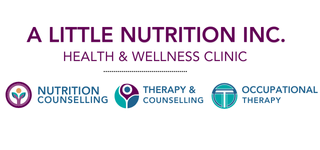For many of us, managing our emotions can be overwhelming – it’s difficult to make sense of all the emotions that arise throughout our day.
Do you ever feel overwhelmed by heavy emotions?
Do you find yourself struggling to manage feelings of sadness, anger, or frustration?
If so, you are not alone. Our fast-paced lives filled with responsibilities and obligations often leave us feeling overwhelmed and emotional. But with a few tips, you can learn how to better manage your emotional well-being! In this blog post, we’ll discuss practical tips for managing your day-to-day emotions so you can start feeling better and living a healthier life.
Managing emotions for improving well-being
Managing emotions is a critical component of maintaining overall well-being. When we experience unpleasant emotions, it can have a ripple effect on our lives. Negative feelings can cause us to lose sleep, disrupt our eating habits, and neglect our bodies. It’s important to recognize the impact that emotions can have on our physical health and take steps to manage them effectively. By acknowledging and labeling our emotions, practicing mindfulness and self-care, and seeking support when needed, we can work towards achieving emotional balance and a healthier lifestyle. Remember that managing emotions is a process, and it takes time and effort. But by prioritizing our emotional health, we can improve our quality of life and promote a sense of inner peace and contentment
Here are some tips you can try to feel better.
Acknowledge your feelings: Recognize and validate your emotions, including the challenging ones. Remember that all emotions are legitimate, and it’s acceptable to experience them. Acknowledge any uncomfortable or distressing feelings, take a moment to turn your focus inward, and observe how you feel. Try to avoid judgment and simply notice what’s present.
Identify what you are feeling: Recognize and label your emotions with specificity. Instead of using general terms like “upset,” try to pinpoint the exact emotion you’re experiencing, such as “disappointed,” “frustrated,” or “angry.”
Experience what you are feeling: Allow yourself to fully experience your emotions, even if they may be uncomfortable. Take a moment to prepare yourself for any unpleasant sensations that may arise. Reflect on why you may be feeling afraid or apprehensive about the emotion. Challenge any negative thoughts or resistance that may be present, and try to reframe them in a positive light. Finally, give yourself permission to sit with the feeling for as long as it needs to be present, and trust that it will pass on its own when the time is right. Remember, it’s okay to feel discomfort sometimes, and allowing yourself to experience those emotions can ultimately lead to greater emotional well-being.
Recover from the feeling: Take a moment to acknowledge and praise yourself for getting through the experience. Release any judgments you may have towards yourself and your emotions. Instead, remind yourself that feelings are a natural part of being human, and that you had valid reasons for experiencing them. By practicing self-compassion and reframing your thoughts, you can move forward from the experience with a greater sense of strength and resilience. Remember, this is a process, and it’s okay to take the time you need to heal and regain your emotional footing.
Deal: It’s important to take a step back and observe whether the feeling is a common occurrence for you. Ask yourself if there is anything you can do to address or change the situation that is causing the emotion. However, it’s important not to make any hasty decisions in the heat of the moment. Instead, take the time to reflect on your options and consider the best course of action for your long-term well-being. By taking a measured and thoughtful approach to dealing with your emotions, you can work towards finding effective solutions and improving your emotional resilience..
Seek additional help: Sometimes we need help processing our feelings and need additional help. If you are struggling and would like help, we have 2 therapist’s on our team that would love to work with you, and are accepting new clients. We have therapists on our team because we know that it often takes a lot more help to make changes to the way we eat. There are often a lot of emotional underpinnings that need to be processed before one can truly work on their nutrition and health.
If you think it might be time to work with a counsellor, let us know. We would be happy to discuss who would be a good fit for you or you can check out their services here: >>> https://alittlenutrition.janeapp.com/
If you need to talk to someone to process your feelings, let us know. Check out our therapist team.

We hired therapists at A Little Nutrition to join our team because we know that it often takes a lot more help to make changes to the way we eat. There are often a lot of emotional underpinnings that need to be processed before one can truly work on their nutrition and health.
If you think it might be time to work with a counsellor, let us know. We would be happy to discuss who would be a good fit.
We offer solutions to your nutrition and health concerns through nutrition counseling. You can meet in person with a therapist or dietitian at our new St. Boniface office [605 Des Meurons street], or you can meet with us virtually by video conferencing or phone.
We specialize in intuitive eating, relationship with food, binge eating, disordered eating, eating disorders, digestive health, and kids nutrition/picky eating. For more information on meeting with a member of our team you can call our office 1-204-515-7466, email: admin@alittlenutrition.com or book online: >>> HTTPS://ALITTLENUTRITION.JANEAPP.COM/






